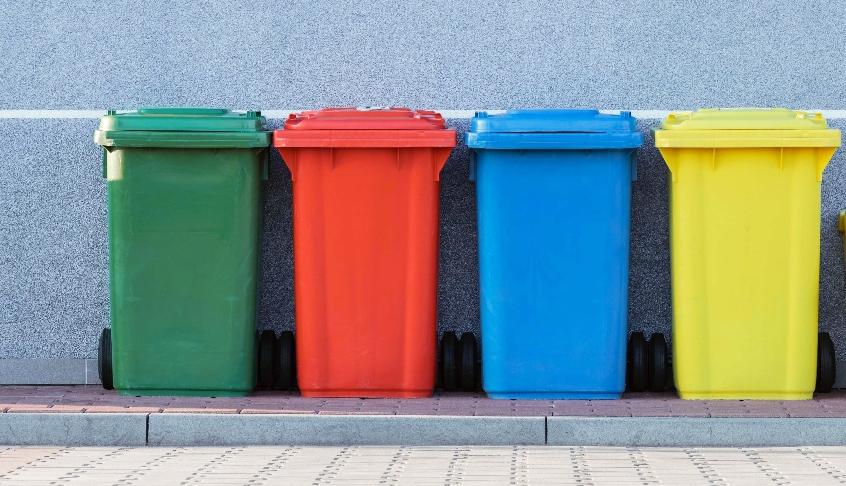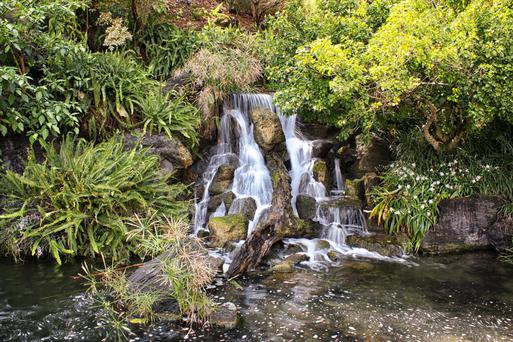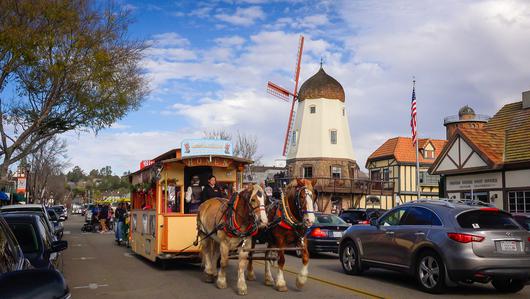Organic Waste
Organics include anything that was once alive, such as food scraps, food-soiled paper, and yard trimmings. While in-tact paper gets placed in the recycling bin, grease-laden paper will contaminate the paper recycling and ought to be placed in the organics bin. If you are using a bag to contain food scraps in the kitchen, make sure it is compostable; plastic or biodegradable bags are not suitable for the organics bin.
Quick Guide for Acceptable Organic Waste Items
- Bones and shells
- Breads, grains, and pastas
- Compostable plastic bags
- Dairy products
- Flowers and flower cuttings
- Food scraps - both raw and cooked
- Food-soiled paper
- Fruit
- Hay
- House plants
- Leaves
- Meat
- Napkins
- Paper cups
- Paper plates
- Paper towels
- Pizza boxes
- Seafood
- Shrubbery
- Straw
- Tree twigs that are less than four feet long
- Vegetables
- Weeds
- Wood chips
- Yard, lawn, and garden trimmings
Unacceptable Items for the Green Bin
- Large tree branches
- Plastic or biodegradable bags
- Plastic, glass, or metal
- Poison oak and poison ivy
- Rocks, concrete, sod and dirt
- Succulents
- Treated or painted wood
Recycling
In order for items to be recycled, they need to be empty, free of food residue, and dry. Any paper or cardboard that is soiled with food must be placed in the organics bin rather than the recycling so it doesn't contaminate other recyclables. Most plastics, glass, metal, and paper products that are free from other substances may be recycled.
Quick Guide for Acceptable Recyclable Items
- Aluminum cans
- Aluminum pie plates
- Books
- Bottles, including empty salad dressing, prescription, shampoo, and conditioner bottles
- Boxes, including cereal and shoe boxes
- Cardboard
- Catalogs, phone books, magazines, newspapers, and junk mail
- Clean food cans
- Clean pots and pans
- Cookie sheets
- Envelopes, including those with metal pieces and plastic windows
- Glass
- Jars
- Lids and caps
- Metal
- Non-metallic wrapping paper
- Paper bags
- Paper egg cartons
- Paper towel and toilet paper tubes
- Paper, including colored, computer, and construction paper
- Plastic cartons, jugs, and containers
- Plastic, including plastic bags and hard plastics like baskets and buckets
- Post-its
- Tissue paper (gift type)
- Unsoiled aluminum foil
Trash
Disposing of items in the garbage bin should be a last resort that is only considered when products do not fit into one of the other categories. Recycling and organic waste are much more sustainable options that give products new life or allow other living things to grow out of their decomposition. However, there are certain things that should not be placed in the trash, even when they don’t fit into the other two categories. Items like hazardous materials, batteries, light bulbs, motor oils, electronic devices, paint, and sharp (or otherwise harmful) materials should be disposed of separately.
Quick Guide to Trash
- Broken dishes and glassware
- Candy and granola wrappers
- Diapers
- Hoses and old household items
- Juice pouches
- Pet waste
- Plastic utensils
- Styrofoam peanuts, trays, and cartons
- Treated or painted wood
- Used tissues






